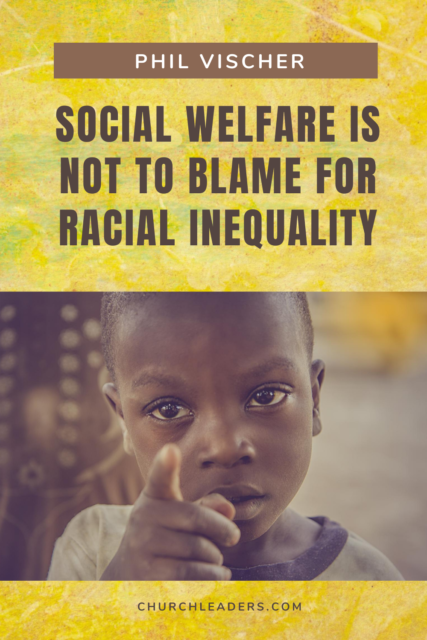On June 14, Phil Vischer (who is known for being one of the creators of VeggieTales), posted a video called “Race in America,” which has generated over 1.2 million views as of this writing. In a follow-up video posted a few days ago, Vischer addressed four questions people have been asking him in response to his initial post, and he encouraged his white viewers not to downplay their role in fighting racial injustice.
“Those of us in the majority have been in the majority since the very beginning,” said Phil Vischer. “The policies that created inequality came from the majority. And any big changes needed to address that inequality will need the support of the majority.”
Phil Vischer Discusses Poverty, Welfare, and the Breakdown of the Family
Phil Vischer says there are several questions he has received repeatedly in response to his first video, which “kind of went viral.” The first was essentially, “What about the fact that Black fathers are often absent?”
Vischer referenced a report created in 1965 by Robert Moynihan for President Lyndon B. Johnson. The report made the case that African American families were in crisis because of their high rate of out-of-wedlock births. At the time, 25 percent of Black women had children outside of marriage compared to five percent of white women. Moynihan saw this as a national crisis connected to the fact that Black men could not get work to support their families.
Today, the disparity is still there and the rates have increased: 70 percent of Black women have children out of wedlock, compared to 30 percent of white women. But we learn something important if we look at how educated the mothers are. The out-of-wedlock birth rate among white women who have a college education is five percent. Among white women with a high school diploma, it is 40 percent, and among white women with no high school diploma, it is 65 percent. This last number is very close to the average out-of-wedlock birth rate for Black women. It is also worth noting that since 1965, the out-of-wedlock birth rate has been growing faster among white Americans than it has among Black Americans.
Vischer concludes, “Marriage isn’t collapsing in Black America. It’s collapsing in working-class America.” He believes the reason that the numbers are worse in Black communities is that African Americans are two-and-a-half times more likely to be living in poverty than white Americans are.
One factor Vischer sees contributing to unemployment and the breakdown of Black families is the fact that unskilled manufacturing jobs have become automated, moved to the suburbs, or moved overseas. Unable to find jobs, uneducated men lose faith in the idea that they can go to work, bring home a paycheck, and support their families the way that their fathers and grandfathers did. “Without the hope of being able to support a family,” said Vischer, “men give up on the idea of fatherhood, and family is in collapse.”
There is one other ethnic group in the United States that is comparable to the Black community in its high rates of unemployment, out-of-wedlock births, and single-parent homes. That group is Native Americans. “Think about it,” said Vischer. “These are the only two groups of people that weren’t given a choice whether or not to live in white America, the only two groups that have been actively and consistently treated unjustly by European settlers since before there even was an America.”
He went on, “And today they are the two groups whose communities are marked the most by poverty, unemployment, and addiction. Is it just a coincidence that we see the most dramatic breakdown of family structure in the two communities that have faced the most historic injustice?”
Phil Vischer on the Welfare State
The next question Phil Vischer addressed is whether or not the welfare programs of the 1960s increased Black poverty and unemployment. His answer to that is a resounding, “No.”
The Black poverty rate was 55 percent in 1959. In 1969, after President Johnson launched his War on Poverty and created federal welfare programs, the Black poverty rate dropped to 32 percent. This does not prove that Johnson’s policies were directly responsible for this decrease (this was a time of overall economic growth in the U.S.), but the numbers do show that those policies did not cause poverty in the Black community to increase.















